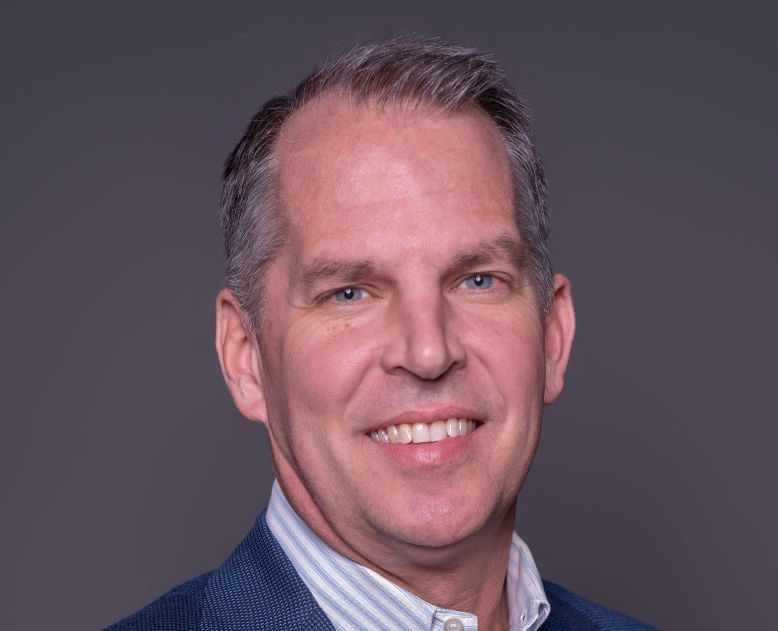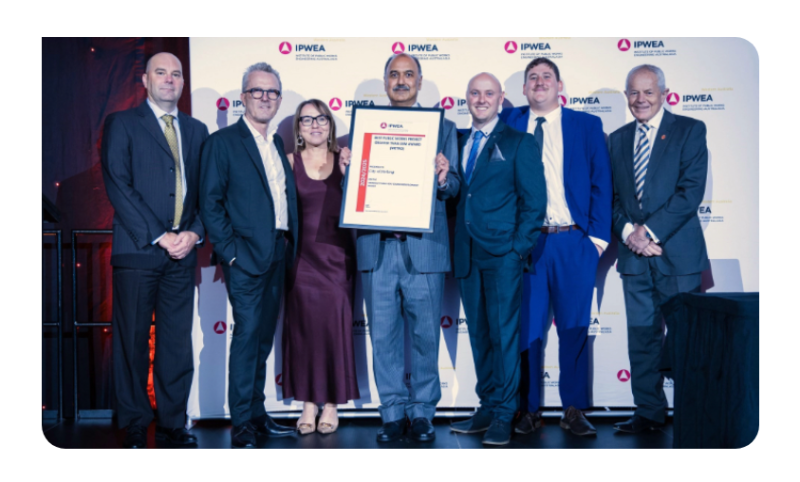SURVIVE & THRIVE: Insights and Tactics from the ‘longtimers’
 Club Marketing Specialist Mike Orloff hosted a live panel discussion with four long term managers in the golf industry. The format for the day was an open live Q/A between the panelists as well as taking questions and comments from the viewing audience.
Club Marketing Specialist Mike Orloff hosted a live panel discussion with four long term managers in the golf industry. The format for the day was an open live Q/A between the panelists as well as taking questions and comments from the viewing audience.
During the 75-minute session, the managers compared notes on some of the “secrets” they have followed over the years that have kept them in the same roles for 15, 20, and 30+ years!
Here we have gathered the key point from the conversation and the questions that were asked by the viewers.
The Panelists
- Gregg Patterson – General Manager – The Beach Club (California) (34 years)
- Barry Linke – General Manager – The Grange GC (South Aus) (31 years and counting)
- David Burton – General Manager – New South Wales GC (24 years)
- Michael Leemhuis – CEO/GM Congressional Country Club (Washington DC) (16 years)
The Conversation
Mike Orloff opened up the conversation by asking each of the panelists about the thoughts and feelings around their club tenure, and how to ensure longevity in the golf industry.
First out was Michael Leemhuis who talked about the importance of a Cultural Fit between a manager and the club.
“If your aspiration is to drive a Mercedes Benz and the club is a club where predominately most of the members drive Fords, then that is probably not going to be a good fit,” he said.
“Do you feel comfortable driving through the gate? Do you feel comfortable in your own skin driving to work? What are the emotions you feel? Even if it’s a materialistic way of putting it, it’s the easiest way to explain it”.
The second thing Michael talked about was the need for having to reinvent oneself. “You can’t stay stagnant in your role. You got to keep up to speed with what’s going on and you have the be the expert in club managements. Otherwise you just become a piece of the furniture and no one is looking to you for guidance or advice,” he explained.
“If you’re not the expert they will go and find an expert.”
Michael finished up by touching upon the importance of staying up to date with the industry and how much time he has spent teaching or on the road learning to keep relevant. “When going to different countries and clubs I always get new ideas that I can incorporate in my own club.” he said.
Next up was current Grange Golf Club General Manager Barry Linke, who said you have to enjoy the club life, enjoy golf and you have to see opportunity within the club.
He believes the secret to staying around at the same club is to surround yourself with good people and loyal staff. “If you have a good group of senior staff that are moving in the same direction that you are, then he believes it can be a good tenure.”
“I agree [with Michael] that you have to keep reinventing yourself. If you stay in one place for a long time the same sort of issues tends to come up and you have to learn to look at them differently at different times.”
“I also agree with keeping up with the industry, things change quickly and you have to stay on top of the current trends.”
Gregg Patterson joined the conversation by giving some background to his many years at The Beach Club in California. “I realised around my third year at the club that being happy at the club and a willingness to staying loyal has more to do with the inner values you have and if they are being satisfied in that environment,” he explained.
“I realised I didn’t need another badge, but my deeply embedded life interests were being satisfied.”
Gregg ultimately said that the culture of the club and the values it stands by must be a perfect with with your own life values. If the two don’t match, you wont stay long at that club.
How do you keep the trust factor when the board changes every 2 or 3 years?
“Trust is fundamental” said Gregg. “Trust is anticipating that you’ll do what you say you’ll do and you’ll say what you do.”
From his experience, he believes trust is easy as long as you communicate. “It’s important to communicate before you make a decision, when you make a decision and after you made a decision. Communication is absolutely key,“ he added.
David Burton, who just finished up his 24 year-long tenure at New South Wales Golf Club, said it is very scary when you have trust issues with either your staff or your Directors. “Everyone must feel like someone has their back in this relationship. The minute the trust gets distorted between either you and the staff, director or member, you have a big problem.”
Michael Leemhuis said he earned the trust of the board by always making the decision that was best for the club. “I believe that’s what built my trust at the club. That people know if they would come to me with a questions, I would always handle the issue in the best way possible for the club.”
What advice would you give your younger self at the start of your tenure?
“Listen a lot! If you listen a lot, you quickly learn what’s important,” David advised. “You have to understand what the directors want, instead of what you think they want.”
David also talked a lot about choosing your battles, or avoiding the battles with directors and members, that you won’t win. “Not everyone is going to like you when you’re new at a club so you have to have thick skin.”
He also touched upon the important of work-life balance, which was expanded upon later on in the conversation.
Barry gave the advice of not taking everything so seriously. “There’s always a bit of chitter-chatter around a club and I think it’s easy to take that personally even though It might not be directed towards you.”
“You need to listen and to decipher what’s important and what’s not.”
He also said he thinks it’s important to always be positive around staff and directors even though you might be having a bad day. You need to work out who are the key players and not trying to satisfy too many people. “You can’t please everybody all the time – that’s the advice I’d give myself.”
Gregg referred to the analytical element of club management and how your analytical skillset is critical. “You need to know if you’re in alignment with the club culture and how you might need to change. You need to figure out what the governance structure is and who makes decisions,” he said.
“I wish someone would have giving me a templet on how to analyse a culture. It took me five years to learn what should have taken me five months.”
Michael picked up where David left off in the conversation about work-life balance. “I spent ridiculously long hours in my young days, and I do believe my dedication and the time I put in played a big part in my success, he said.
“But, as Gregg mentioned, as I stayed longer with the club I learnt when and how and why to be in certain places. You don’t have to spend 80 hours at the club, you just need to learn when you need to be there!”
What were some challenges in your early days as a manager ?
“One of the biggest changes throughout the years has been memberships,” said Barry. “When I first came to the club we had a 10 year waiting list for membership and then a few years later we had no waiting list at all and we were out there trying to market memberships. I believe the expectation on memberships and course maintenance from members are higher now and we need to keep the course presented to a higher standard any day of the week now.”
Michael explained that the technology and way of communicating had been one of the biggest changes. The use of Human Resource staff was also something that was introduced later on in his career, and that now is a staple at any bigger club.
David summed up the conversation by saying: The game hasn’t really changed, but everything else has.”
When did you know it was time to go?
“When I felt like I didn’t really want the club to change, I knew it was time to go. I still have a buzz but the buzz was about reflecting rather than managing,” said Gregg. He explained how he is in his “third stage” of his life and how he wants so spend it reflecting on what he has done previously.
Michael similarly said he was happy with what he had done and now needed time to himself and time to spend with family, while also seeking more personal growth than the club could offer him. “The gut. In your gut you know when its time to move and when its time to stay. Listen to your gut, do your research and analytics but at the end of the day you know,” he said.
“You have a feeling at the pit of your stomach,” further explained David, who only left his position a few days prior. “I wanted to do something different. Have a crack at something else, get fresh and do something else. Which is never easy.”
“If you have difficult decisions, you have a great life,” he concluded.
“Try to have some fun and a positive outlook,” said Barry. “Clubs can be unforgiving and can be hardest to them who does the most for them. Don’t take thing so serious and try and have fun and you’ll survive and thrive for a long long time.”
Gregg finished up the question by mentioning the “perfect match” again. “You have to define success for yourself; what are your life interest and do the club satisfy those? You have to understand club culture and if you want to be in alignment with that culture,” he said.
He ended with a questions that all managers should be asked and posed for some further thinking after the live stream:
“If you were giving a membership at this club, would you use it and how frequently?
—
The conversation brought up more questions and more valuable insights to the managers’ time at their clubs. If you want the full scope you can still register to download it in podcast format or via video.















